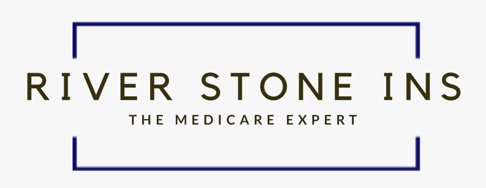There are a lot of decisions to make when it comes to choosing a health insurance plan. One of the first decisions you will need to make is which type of plan is right for you. There are 2 main types of health insurance plans – HMO and PPO.
- HMO stands for Health Maintenance Organization. HMO plans typically have lower monthly premiums. You can also expect to pay less out-of-pocket for medical services. With most HMO plans, all of your healthcare services are coordinated by your designated Primary Care Physician (PCP). With an HMO, you must first schedule an appointment with your PCP and he/she will provide a referral to an in-network specialist. HMOs don’t offer coverage for care from out-of-network healthcare providers. The only exception is for true medical emergencies. Since HMOs only allow you to visit in-network providers, it’s likely you’ll never have to file a claim. This is because your insurance company pays the provider directly.
- PPO stands for Preferred Provider Organization. PPOs tend to have higher monthly premiums in exchange for the flexibility to use providers both in- and out-of-network without a referral. Out-of-pocket medical costs can also run higher with a PPO plan. A PPO plan does not require you to select a PCP. You can receive care from any doctor you choose, however you will save money by choosing a healthcare provider within your network. PPO plans do not require referrals for any services. With a PPO, you have the flexibility to visit providers outside of your network. However, visiting an out-of-network provider will include a higher fee and a separate deductible. In some cases, you will have to pay a doctor for services directly, and then file a claim to get reimbursed. This is most common when you seek services from out-of-network providers.
Generally speaking, an HMO might make sense if lower costs are most important and if you don’t mind using a PCP to manage your care. A PPO may be better if you already have a doctor or medical team that you want to keep, but who don’t belong to your plan network. Submit the requested information to request a quote for your health insurance needs.
The Facts About Life Insurance
Life insurance is one of the pillars of personal finance, deserving of consideration by every household. When armed with the proper information, you can simplify the decision-making process and arrive at the right choice for you and your family.
- If anyone relies on you financially, you need life insurance.
- Life insurance helps compensate for the inevitable financial consequences that accompany the loss of life. Strategically, it helps those left behind cover the costs of final expenses, outstanding debts and mortgages, planned educational expenses and lost income. But most importantly, in the aftermath of an unexpected death, life insurance can lessen financial burdens at a time when surviving family members are dealing with the loss of a loved one. In addition, life insurance can provide valuable peace of mind for the policy holder. That is why life insurance is vital for the bread winner of a single-income household, but still important for a stay-at-home spouse.
- There are two types of life insurance—term and permanent.
- Term life is the simplest, the least expensive and the most widely applicable. With term life, a life insurance company bases the policy premium on the probability that the insured will die within a stated term—typically 10, 20 or 30 years. The premiums are guaranteed for the length of the term, after which the policy becomes cost-prohibitive to maintain or you decide to let it lapse. Yes, this means that you may very well pay premiums for decades and “get nothing out of it.” But that’s good news, because it means you’re winning at the game of life.
- Permanent life insurance includes this same probability-of-death calculus, but also includes a savings mechanism. This mechanism, which is often referred to as “cash value,” is designed to help the policy exist into perpetuity. Whole life—the original—has an investment component much like bonds or CDs (but backed by the insurance company). Variable life offers investment options more like mutual funds. Universal life was designed as a less expensive permanent life insurance alternative with added flexibility, but increased interest rate risk for the owner. Although they tend to be more complex and expensive, there are financial dilemmas—often related to business planning and/or high-net-worth estate planning—for which permanent life insurance may be the only solution. There are a few select instances where permanent policies are engineered to maximize the tax-privileged growth of cash value. They are, however, only appropriate for a small number of people and still dependent on numerous other factors to work the way they’re intended.
- Determining the optimal life insurance policy for you doesn’t have to be complicated. Contact us directly to assist you further.

